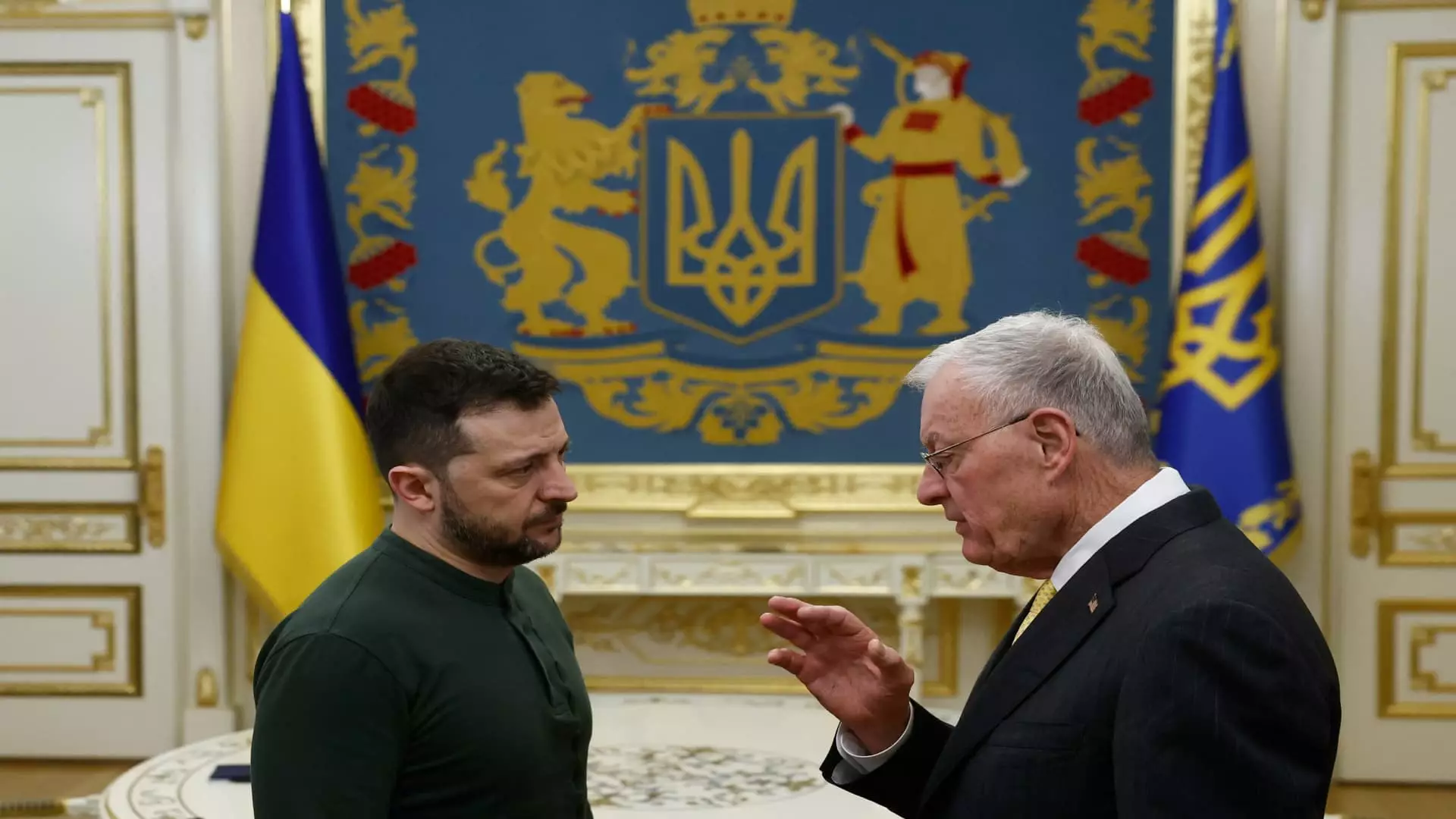The ongoing conflict in Ukraine has shifted the dynamics of international negotiations, particularly regarding the strategic resources that underpin both war efforts and diplomatic relations. In recent discussions, U.S. negotiators have expressed the urgency of accessing Ukraine’s critical mineral resources. This situation has escalated to the point where continued access to crucial satellite internet services, particularly SpaceX’s Starlink, has been placed on the negotiating table.
Since Russia’s invasion in February 2022, Starlink has proven to be an indispensable asset for Ukraine, providing timely and reliable internet connectivity amid widespread destruction of communication infrastructure. This service has allowed Ukrainian forces to coordinate military operations, disseminate information, and maintain a connection to the outside world. U.S. officials have acknowledged its significance, with one source describing Ukraine’s dependence on Starlink as akin to their “North Star.” A disruption of this service would not only hinder military communication but also impact civilian connectivity in a nation already grappling with the ravages of war.
Since the beginning of the conflict, the reliance on advanced technologies, such as drones, has become a focal point of Ukraine’s military strategy. Experts, including Melinda Haring from the Atlantic Council, assert that Starlink has empowered Ukraine’s operational capabilities in drone warfare, creating a balance with Russian capabilities in terms of unmanned aerial vehicle deployment. The potential for losing access to Starlink could thus result in devastating strategic ramifications.
As Ukraine navigates its war efforts, U.S. officials have pivoted to the notion of securing access to Ukraine’s rich deposits of critical minerals—resources essential not just for military hardware but also for the burgeoning green technology sector in the U.S. As tensions grew, initial proposals were met with resistance from Ukrainian President Volodymyr Zelenskiy, who has actively rejected demands that could jeopardize Ukraine’s sovereignty. The proposed U.S. deal, which reportedly would have given American interests a hefty share of Ukraine’s mineral wealth, has been a point of contention. Zelenskiy’s refusal highlights the complexity of balancing external aid against national interests.
This conflict over resources has revealed deeper schisms in the negotiation process, especially with the Biden administration’s current handling of the relationship with Ukraine, juxtaposed against Trump’s contentious stance on negotiating with Zelenskiy. The former president’s comments imply a lack of trust in Ukraine’s leadership, further complicating the proceedings.
This fraught dialogue surrounding Ukraine’s resources raises critical questions about U.S. foreign policy direction. The rift in leadership perspectives is palpable; Zelenskiy perceives the West’s support as contingent on more than just economic gain, emphasizing that robust security guarantees must accompany any deal. The dynamics of the negotiation reveal a complex web of interests that extend beyond Ukraine’s borders, encapsulating the geopolitical tussle between Western allies and Russian influence.
Moreover, the insistence on accessing Ukraine’s minerals signifies a strategic pivot by the U.S. toward securing energy independence and technological advancement amid increasing competition for rare earth elements, notably with China. The stakes are incredibly high for both nations—Ukraine risks losing its military advantage without reliable access to Starlink while navigating the precarious path of foreign negotiations and national integrity.
The unfolding negotiations concerning Ukraine’s critical minerals and Starlink access illustrate the intricate balancing act between military necessity, economic interests, and national sovereignty. As these discussions progress, it is crucial for both sides to recognize the broader implications of their choices—not only for immediate military strategy but for the long-term geopolitical landscape. Ukraine stands at a crossroads; the outcome of these negotiations will undoubtedly shape its sovereign future and its ongoing struggle for independence against Russian aggression.

Leave a Reply